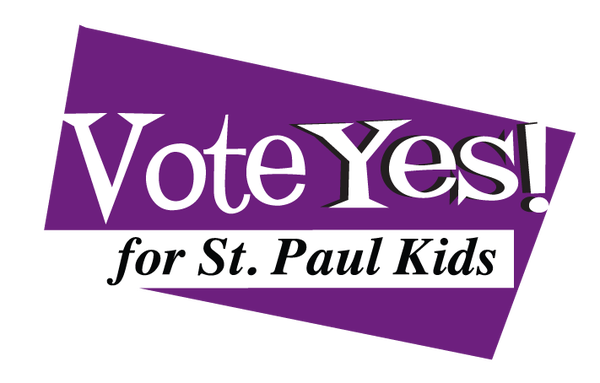

Share
Just months after emerging from a fractious round of contract negotiations, St. Paul educators, board members and administrators are pulling in the same direction this fall, urging voters to approve an operating levy worth an additional $18.6 million in annual school funding for the district.
The new funds would help the St. Paul Public Schools address revenue shortfalls that have forced over $50 million in programming, staff and other budget cuts over the last three years. This school year, the district shaved an additional $17.2 million from its budget.
A number of factors outside the district’s control have contributed to the budget woes, but the biggest factor, district leaders say, is the state government’s per-pupil funding formula hasn’t kept pace with rising education costs. Mandated special education services, for example, cost the district $42 million more annually than the funding it receives to provide those services.
With so much uncertainty, SPPS Superintendent Joe Gothard said the levy increase would provide the district with greater budget stability, freeing schools and educators to focus less on where to cut and more on the students they serve.
“We have great work happening every day in our schools, but it is a challenge to sustain our efforts,” Gothard said. “We see this levy as a investment in making sure St. Paul continues to be a great place to live, work and learn.”
Members of the St. Paul educators’ union began mobilizing in support of the levy as the new school year began, pursuing an ambitious plan to knock the door of every educator living in the district. Beth Swanberg, a music teacher at Highland Park Middle School, said her conversations at the doors have been positive.
“People in St. Paul are supportive of public schools,” Swanberg said. “There is a history of quality education here, and people have told me they want to continue that.”
A game of ‘what if?’
Indeed, the stakes are high for students, parents and educators. Long gone are the days when districts like St. Paul went to voters with levy requests to fund the extras that might enrich their schools’ programming.
“Now we’re trying to do a levy referendum to make up for the cuts that have come down from our state Legislature,” union president Nick Faber said.
Last month the North Star Policy Institute unveiled a new report, “Minnesota Backslide,” that charts the decline in state funding to local school districts. Researchers found 93 percent of school districts statewide are receiving less aid today, in inflation-adjusted dollars, than in 2003, when state lawmakers overhauled the school funding system. In half of districts statewide, state funding has dropped by more than 10 percent.
The state’s failure to keep school funding steady has forced most school districts to seek property-tax levies to bridge the gap.
St. Paul is no exception. If state funding had kept up with inflation over the past 15 years, SPPS would have received nearly $620 more per student this year. That’s a total of $21.6 million in lost funds – a number that leaves a lot of educators wondering “what if?”
“If we could actually start to recoup the funding that we’ve lost over the last 20 years and have that referendum on top of it, imagine the things that we could do,” Faber said. “With the knowledge that our educators have here in St. Paul, with their willingness to tackle racial equity head on, we could accomplish so much with that kind of funding.”
“I often wonder what I would request for my students if we had more funds, and it’s hard to even imagine because I’m so used to not having any extras,” Highland Park Middle School teacher Leah VanDassor said. “It’s been so many years of cuts, cuts, cuts at every level.”
VanDassor, Swanberg and other St. Paul educators aren’t just talking with voters about the levy. They are also trying to paint the bigger picture, urging support for labor-endorsed candidates at the top of the ballot who will reinvest in public schools. That includes Tim Walz, the labor-endorsed candidate for governor.
But VanDassor acknowledged “any fundamental change will not be fast,” and the immediate needs of her students are great.
Trusting the voters
The levy campaign has broad support from the community. The St. Paul Regional Labor Federation has endorsed it, and so has St. Paul Mayor Melvin Carter, who called SPPS the “lifeblood” of his community.
Only a year removed from campaigning citywide for the mayor’s office, Carter said he has faith people living in the school district will join him in voting “yes.” The investment, Carter added, goes hand in hand with his administration’s work to realign city programming to meet the needs of St. Paul’s changing population – and include more voices.
“We’re not just going to say we can do more for our children,” he said. “We’re actually going to do more for our children.
“I’m confident the city will step forward.”

